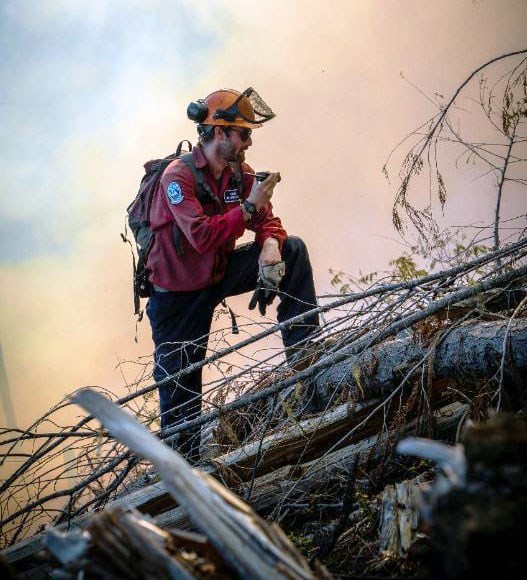The BC government is urging residents of Prince George and other parts of the province to prepare for seasonal emergencies as rising temperatures increase the risk of flooding, drought and wildfires.
The warning came Tuesday, April 16 in a joint message from the Ministry of Emergency Management and Climate Readiness, the Ministry of Forests and the Ministry of Water, Land and Resource Stewardship.
They say now is the time to create emergency plans and assemble grab-and-go bags while monitoring weather and water conditions.
“Preparing for emergencies is a team effort,” said Emergency Management Minister Kelly Greene. “As warmer weather arrives, it’s equally important that people have their own emergency plan, have a grab-and-go bag ready, and know what to do in all types of emergency situations.”
The River Forecast Centre’s latest snowpack survey, released April 9, shows BC’s overall snowpack is at 79 per cent of normal levels. That’s up from 63 per cent last April — the lowest in half a century — but the risk of flooding remains, particularly with rapid snowmelt and prolonged or heavy rainfall in the weeks ahead, the ministries advise.
In low-lying areas, the province recommends residents move valuable equipment to higher ground and clear perimeter drains and gutters. Sudden drops in water levels may indicate upstream blockages and should be reported immediately to local emergency officials.
Water concerns remain high, despite the modest increase in snowpack. Drought conditions that devastated large parts of the province in 2024 are expected to continue this year, with long-term water supply challenges persisting.
“Even though it's only April, drier-than-normal conditions in parts of the province mean we already need to be mindful of water use,” said Water, Land and Resource Stewardship Minister Randene Neill. “That’s why we continue to update our Drought and Water Scarcity Response Plan and invest in long-term water security.”
The province has allocated $100 million to its Watershed Security Fund to support long-term efforts to conserve and manage water.
The BC Wildfire Service (BCWS) is also preparing for an early and potentially active wildfire season, citing ongoing drought and a lack of significant rainfall in the forecast.
“We don’t know what this season will bring, but we are putting in the work each and every day to protect our communities,” said Forests Minister Ravi Parmar. “I urge British Columbians to do their part through our provincial FireSmart program.”
The province is investing $90 million in wildfire prevention programs in 2025, including FireSmart initiatives and work through the Forest Enhancement Society of BC.
A total of 88 cultural and prescribed burn projects are planned this year, up from 48 completed in 2024.
British Columbians are being encouraged to prepare emergency kits with water, food, medication, and first-aid supplies, and to register with Emergency Support Services at ess.gov.bc.ca to streamline access to help in the event of an evacuation.
In 2024, the province introduced several improvements to emergency response support, including direct deposit payments for evacuees, a $200-per-night accommodation allowance and the BC Evacuation Helpline to assist people remotely.
Homeowners and tenants are also being urged to maintain insurance coverage, which can help cover both property damage and temporary living expenses during emergencies.



